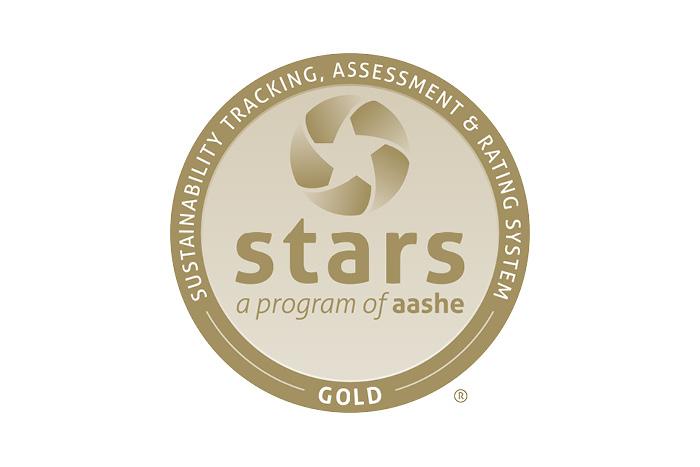Dickinson College Takes Top Spot in Comprehensive Sustainability Report

Dickinson notches back-to-back top rankings for sustainability
by Craig Layne
For the second year in a row, Dickinson has earned the top position among baccalaureate institutions in the prestigious Sustainable Campus Index, a publication of the Association for the Advancement of Sustainability in Higher Education (AASHE). This is the sixth consecutive year Dickinson has been recognized as a top performer. In addition to remaining in the No. 1 spot in the coveted Overall Top Performer category, Dickinson earned the No. 2 place in the air & climate category with a perfect score of 100%.
“This incredible recognition speaks to Dickinson’s commitment to sustainability and our achievements,” says Neil Leary, director of the Center for Sustainability Education. “Wherever our students’ academic journeys take them, they will carry with them skills and passions for working toward a world that is socially, economically and environmentally sustainable.”
The Sustainable Campus Index recognizes top-performing sustainable colleges and universities overall and in 17 impact areas, as measured through the Sustainability Tracking, Assessment & Rating System (STARS). “All of us at AASHE extend our warmest congratulations to Dickinson for their achievement,” says Meghan Fay Zahniser, AASHE's executive director. “By fostering sustainable practices and initiatives, you set an inspiring example for your peers and future generations.”
Students are at the center of Dickinson’s sustainable practices, from helping community members repair their bicycles at The Handlebar to working with the local county government to develop a climate action plan and growing sustainable, organic food for the campus and community at the college farm. With more than 100 sustainability-related courses offered each academic year, dozens of co-curricular groups and research projects, students are engaged in sustainability science, policy and advocacy across the campus and curriculum.
Genesis Whitlock ’25 is a manager at the Treehouse, also known as the Center for Sustainable Living, a special-interest house where students can live and work together to support and promote sustainability efforts among themselves and throughout campus. “This semester we are learning to use our sustainable infrastructure, like our compost spinner, biogas cooker and garden beds, and hosting community-based events to increase student engagement in environmental and social justice efforts on campus,” Whitlock explains. “These experiences have encouraged me to think critically and deepen my understanding of what sustainability means to me.”
Juliana Gianni ’24 says her internship with the Center for Sustainability Education has given her unique experiences, “from running the massive compost machine in the cafeteria, to coordinating a group of 20-plus volunteers, to handling the college’s entire carbon footprint data. These opportunities have not only made my college experience memorable but have also equipped me with a diverse skillset that has prepared me to enter the workforce and continue successfully advocating for sustainable solutions in the real world,” she says.
The college is no stranger to recognition for its sustainability efforts. Newsweek recently named Dickinson one among “Seven of the Greenest College Campuses in the U.S.” The Princeton Review ranked the college second in the nation on its list of “Top 50 Green Colleges” and named the institution to its annual “Green Honor Roll.” Other sustainability achievements include being one of the first 10 colleges in the U.S. to reach carbon neutrality and joining the Second Nature Climate Leadership Resilience Commitment.
Additionally, the Dickinson College Farm’s pioneering anaerobic digester project has secured more than $1.3 million in funding for the system that turns food waste (including beer byproducts) and cow manure into biogas for sustainable electricity generation. Recently, the Cumberland County Conservation District awarded the project a $250,000 grant, and the GIANT Company and Keep Pennsylvania Beautiful contributed $20,000. Additional support has come from the USDA Natural Resource Conservation Service, the U.S. Environmental Protection Agency, the Met-Ed Sustainable Energy Fund, Constellation Energy, the Pennsylvania Department of Agriculture, the Pennsylvania Department of Environmental Protection, High Tide Foundation and the South Mountain Partnership.
TAKE THE NEXT STEPS
Published September 26, 2023